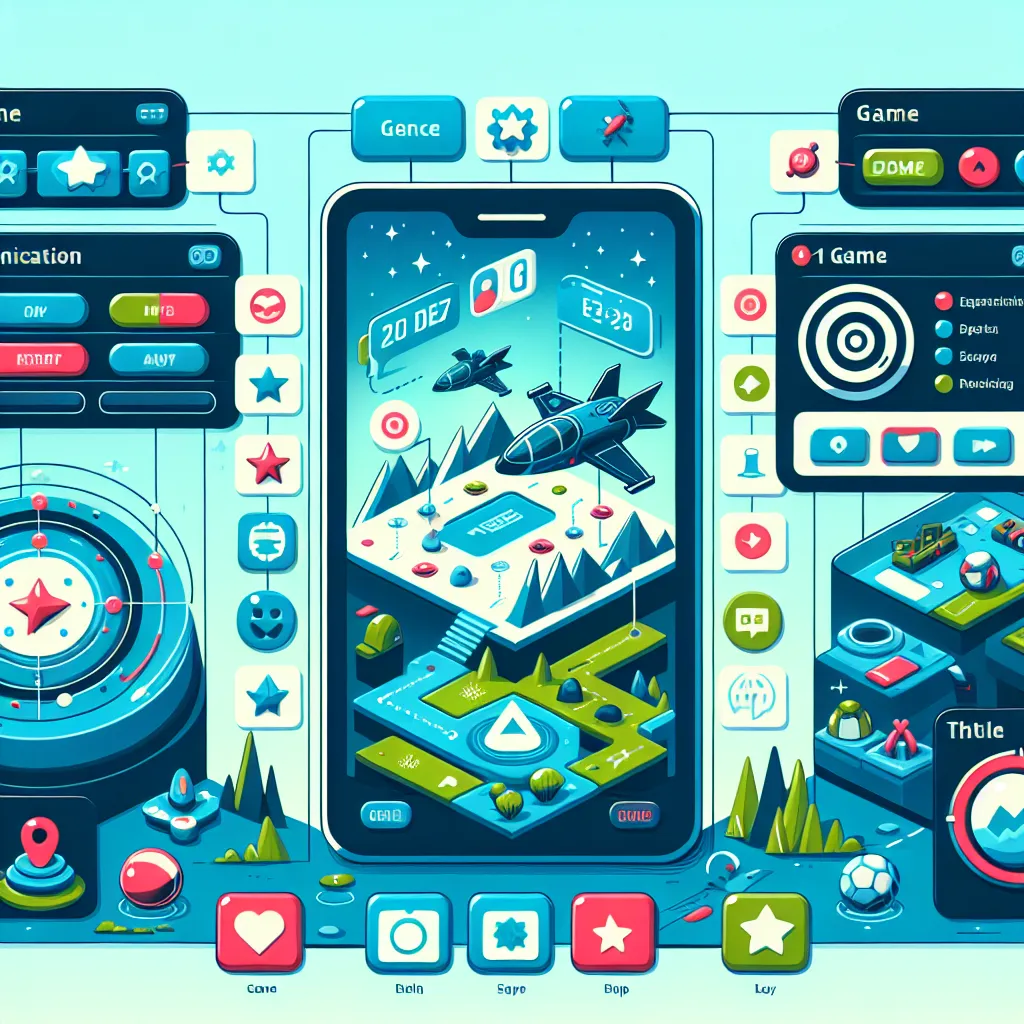Mastering Mobile Game Design: A Comprehensive Tutorial

Understanding User Experience in Mobile Game Design
Understanding user experience (UX) is crucial in mobile game design as it directly impacts the success of the game. To create an engaging and enjoyable gaming experience for the user, it is important to consider factors such as intuitive interface design, seamless navigation, and captivating visuals. Mobile game designers should focus on creating a user-centric design that promotes easy interaction and empowers players to navigate the game effortlessly. By understanding the preferences and behaviors of the target audience, designers can tailor the UX to meet users’ expectations and deliver a satisfying gaming experience.
Furthermore, incorporating feedback mechanisms and analyzing user data can provide valuable insights into how players engage with the game. This information can be used to make data-driven design decisions that enhance the overall user experience. Additionally, optimizing the game for various devices and screen sizes is essential to ensure a consistent and enjoyable experience for all players.
In conclusion, understanding user experience in mobile game design is a multifaceted process that requires a deep understanding of the target audience, intuitive design principles, and continuous refinement based on user interaction data. By prioritizing user experience, designers can create mobile games that resonate with players and ultimately lead to greater success in the competitive mobile gaming industry.
Leveraging Game Mechanics for Mobile Game Design
When it comes to mastering mobile game design, leveraging game mechanics is a crucial aspect that can greatly impact the success of a game. Game mechanics refer to the rules and systems that govern the gameplay and interactions within a game. In the context of mobile game design, understanding and effectively utilizing game mechanics can significantly enhance the overall engagement and enjoyment of players.
One key consideration when leveraging game mechanics for mobile game design is to ensure that the mechanics are well-suited for the mobile platform. Unlike traditional gaming platforms, mobile devices have unique characteristics such as touchscreens, various screen sizes, and limited processing power. Therefore, game mechanics should be tailored to capitalize on these features, providing intuitive and responsive gameplay experiences.
Furthermore, the incorporation of social and competitive game mechanics can greatly boost player engagement in mobile games. Integrating social features like leaderboards, multiplayer modes, and social sharing options can create a sense of community and friendly competition among players, driving greater retention and virality. By harnessing these social dynamics, mobile game designers can tap into the inherent interconnectedness of mobile users.
Moreover, the effective use of reward and progression mechanics is pivotal in mobile game design. Implementing compelling progression systems, meaningful rewards, and in-game achievements can motivate players to continue playing and investing their time in the game. These mechanics can create a sense of accomplishment and provide clear goals for players to strive towards, leading to increased satisfaction and prolonged engagement.
In conclusion, leveraging game mechanics for mobile game design involves a thoughtful alignment of mechanics with the unique attributes of the mobile platform, as well as the strategic incorporation of social and progression elements to elevate player engagement and satisfaction.
Monetization Strategies for Mobile Game Development
Mastering Mobile Game Design: A Comprehensive Tutorial is an essential resource for game developers looking to optimize their monetization strategies. Developing a successful mobile game requires not only a compelling gameplay experience but also a sound plan for generating revenue. In this tutorial, we will explore the most effective monetization strategies for mobile game development.
One of the most popular and proven strategies for monetizing mobile games is the freemium model. This approach offers the game for free, allowing players to enjoy the core experience without any upfront cost. However, the game offers in-app purchases for various items, power-ups, or additional content. This strategy capitalizes on the willingness of players to spend money within the game to enhance their experience or progress more quickly.
Another effective monetization strategy is the implementation of rewarded ads. By offering players the option to watch a short video ad in exchange for in-game rewards, developers can generate revenue while providing value to the players. This strategy relies on the principle of voluntary engagement, ensuring that players are not forced to view ads but are incentivized to do so for tangible benefits.
Furthermore, mobile game developers can explore the potential of sponsorships and product placements within their games. By integrating branded content or sponsored features, developers can secure additional revenue streams while offering a seamless and non-intrusive advertising experience for players.
In conclusion, mastering the art of mobile game monetization is crucial for the success of any game development endeavor. By implementing a combination of freemium models, rewarded ads, and strategic partnerships, developers can maximize their revenue potential while maintaining a positive user experience.



